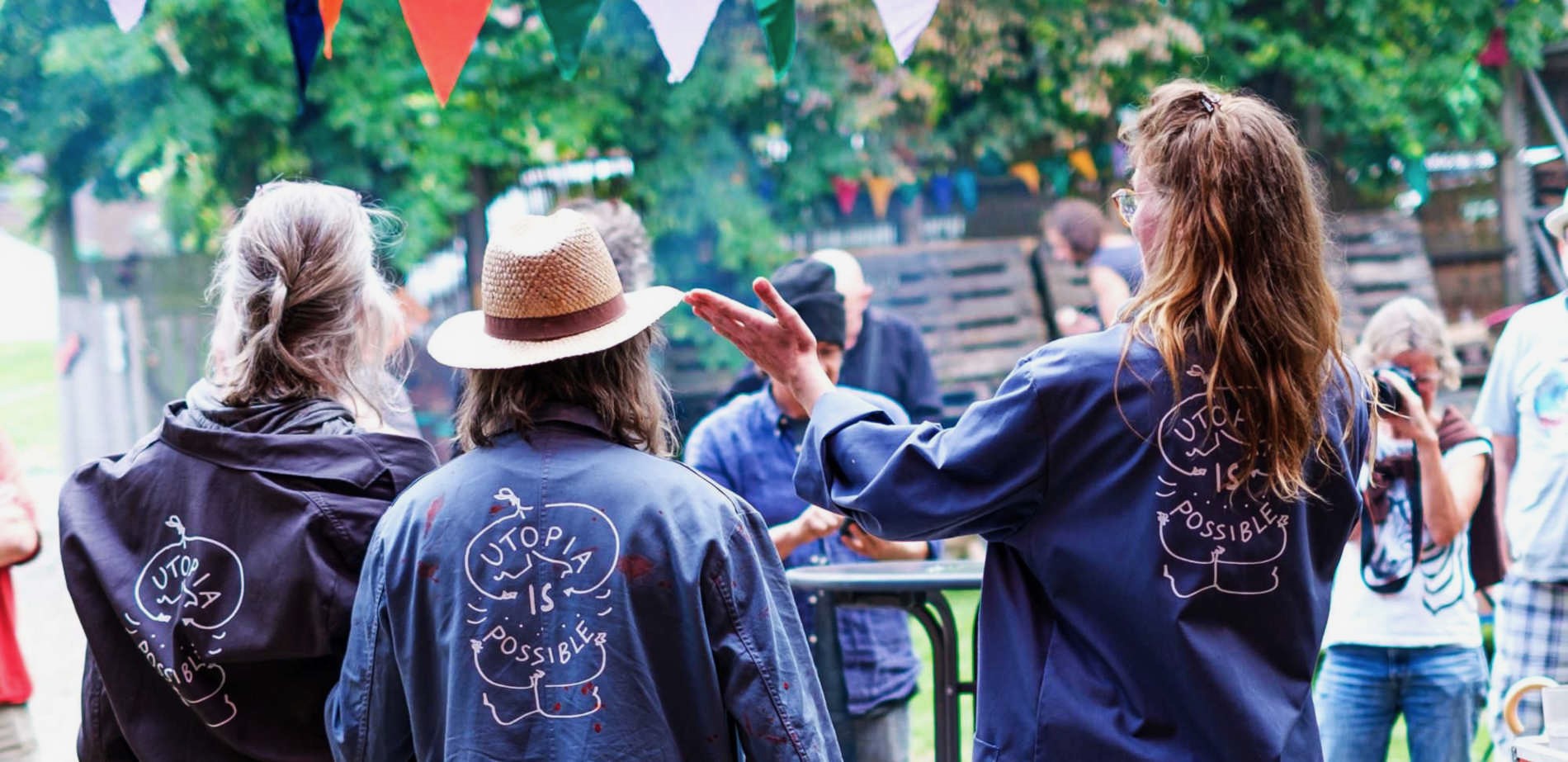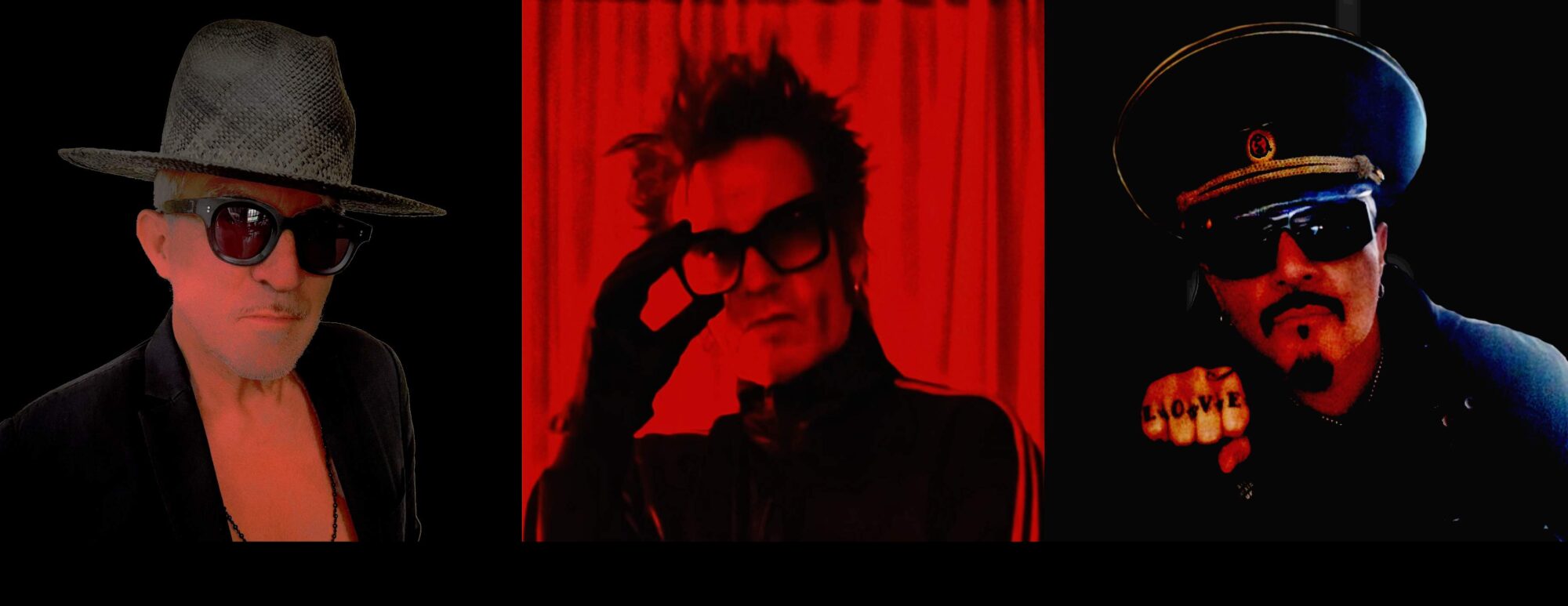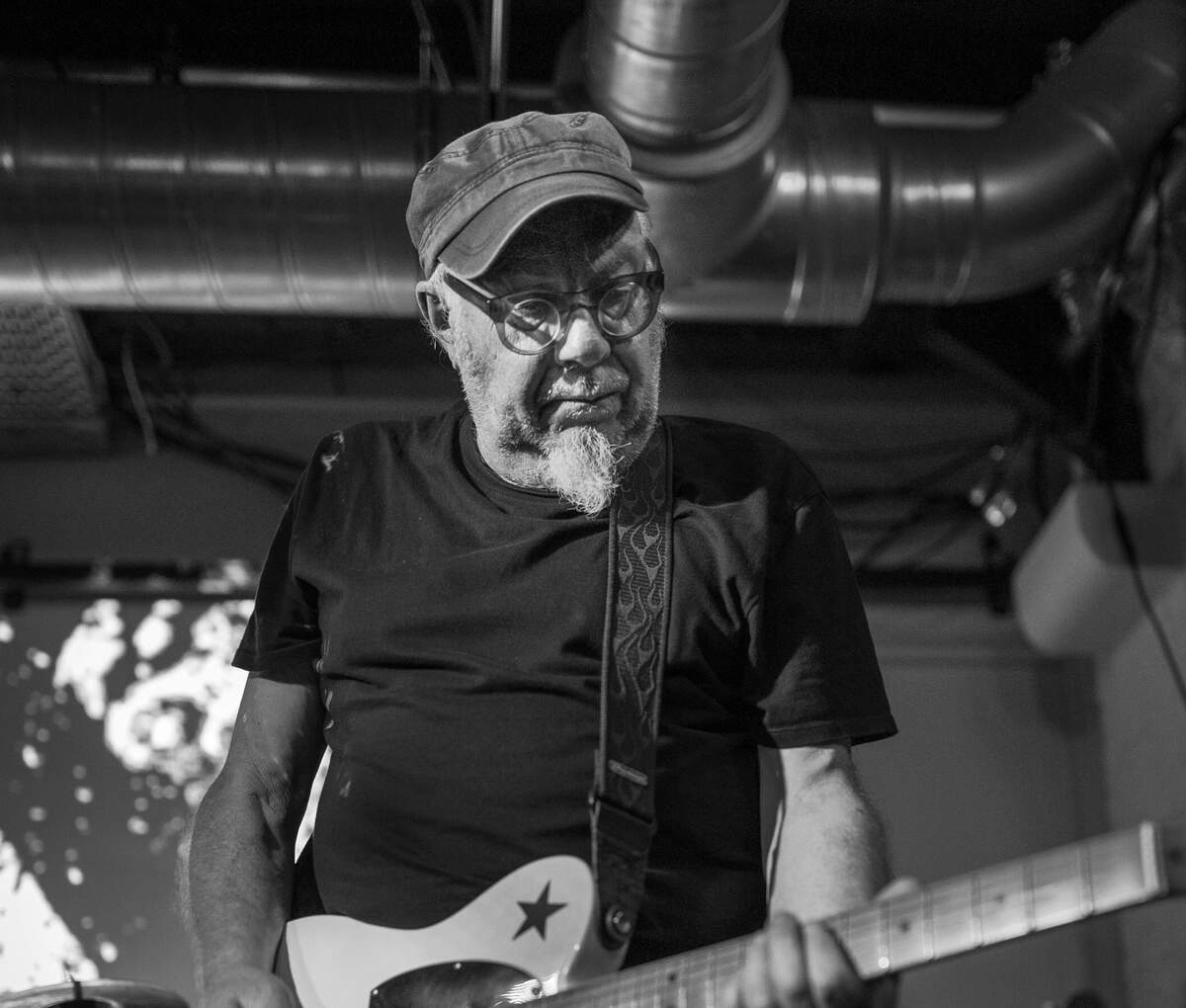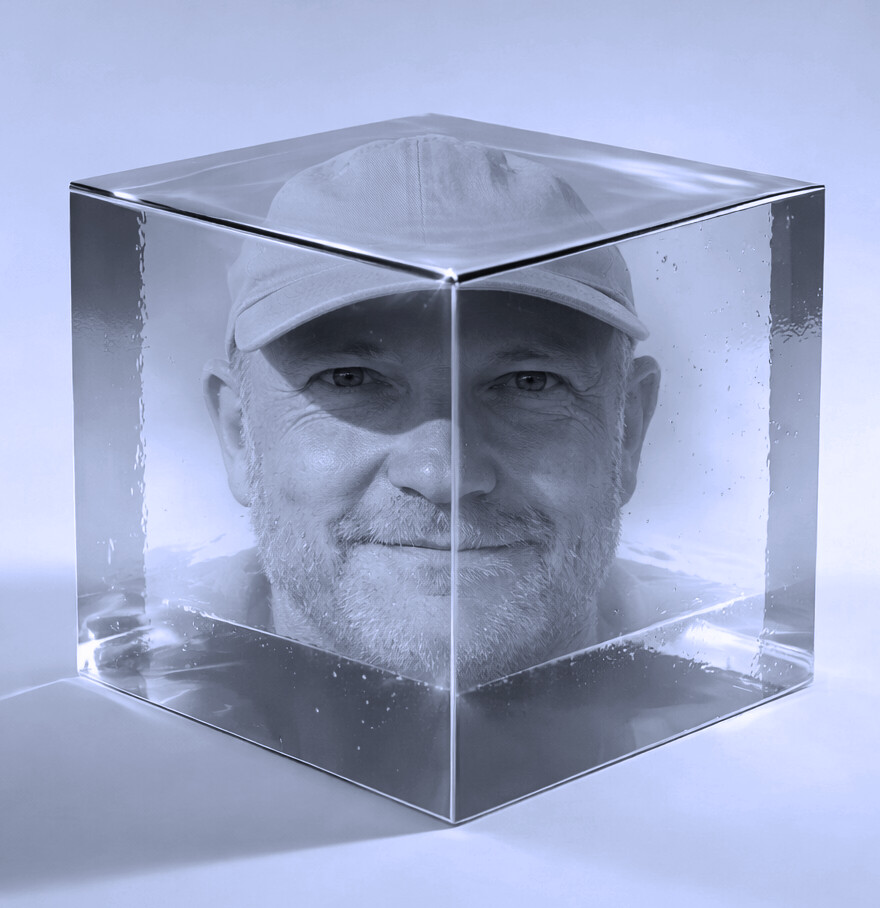Reawakening the Monster: An Interview on the Avantgarde Festival’s Return to the Scene
The Avantgarde Festival, nestled between Hamburg and Lübeck, has become a hub for unorthodox sound and experimental art.
What makes it truly special is the sense of family at its core. From the founders to the crew and the artists, the festival feels more like a community than a mere event. This sense of connection is not just figurative—it’s literal, with Jean-Hervé, Carina and Jeanne-Marie leading the charge alongside a passionate team that has brought the festival back to life after a few years’ hiatus.
What stands out about Avantgarde is its commitment to inclusivity. The festival has long championed free entry for locals, making it accessible to those who might not typically venture into avant-garde territory. While the financial model may be precarious, this commitment to accessibility speaks volumes about the festival’s core mission: to introduce experimental art to a wider, more diverse audience, without the barriers that often restrict such avant-garde spaces. It’s about inviting people into a world where creativity is allowed to flourish without restriction, no matter their background.
The festival’s return in 2025, after announcing its closure in 2019, speaks to its unique energy. Jean-Hervé Peron describes it as “a monster who sleeps deep but sporadically wakes up,” capturing the festival’s enduring pull. The Avantgarde Festival thrives because it taps into something people are craving: an escape from the usual, a chance to engage with the unexpected. It’s a place where sound, art, and ideas collide, creating space for discovery and conversation. Rather than just showcasing art, it’s about fostering connections between the audience, the artists, and the world around them. Each year, it grows with the times, staying fresh and alive by offering something new, something that makes you think. It’s not about fitting in; it’s about creating a space where everything can exist, and that’s what keeps it going strong, year after year.
From June 20 to 22, 2025, the farm in Schiphorst will host the 15th edition of the “Three Days of Utopia.” More info here!
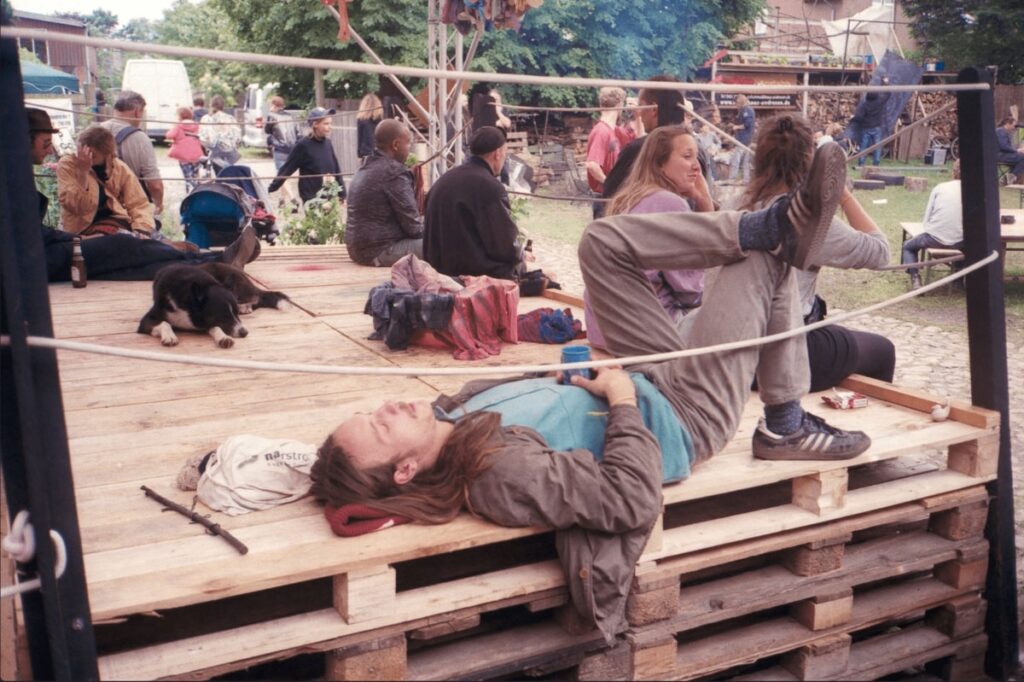
“Three Days of Utopia”
The Avantgarde Festival has gone through many transformations over the years, both in name and spirit. How would you describe the festival’s identity in 2025 compared to when it first began?
Jean-Hervé Peron: We started this adventure in 1996, that is 29 years ago. Although we have evolved, body and mind, and although society too has gone through noticeable changes, I definitely feel the spirit of the “Avantgarde Festival aka Midsummer Specials aka Sommersonnenwende Fest aka Avantgarde is Happening” has remained. Same enthusiasm, same desire to invite convinced artists, to offer good food, good vibes, all at affordable prices – this has not changed.
What has definitely changed is the fact that since 2017, the festival organization and curation is all in women’s hands – and that is soooo good! I had the pleasure to witness how such an operation can be run smoothly, without stress, hierarchy, or pressure. It’s aiming into a beautiful direction.
Carina Varain: And it is younger. The artists who are booked are selected by Jeanne-Marie Varain. She is young, and her connections are fresh / more up to date than ours. In the beginning, the artists were mainly friends and colleagues of JHP. A crazy, “famous” mix of people.
What do you think sets the Avantgarde Festival apart from other avant-garde events? Is it the community, the music, or the space you create that makes it so unique?
Carina: The space!
Jean-Hervé: Before we go into a long discussion about “What is Avantgarde?” let’s simply say: “If it does not have a name, it doesn’t exist.”
So in 2005 we decided to call our family-like fiestas “Avantgarde Festival Schiphorst” as a sort of filter, an orientation for festival-goers. Our program over the three days stretches from experimental arts – be it music, visuals, or dance – to children’s workshops, horse rides, guided walks, swimming at the local open-air swim area. We have no backstage, so the artists and the audience are constantly in contact…
All this, plus our unique concept of the “Annex,” makes a big difference. Created in 2009, the Annex is a space within the festival, totally open to spontaneous collaborations between the festival artists and/or artists within the audience – not curated, not controlled… it works splendidly.
Jeanne-Marie Varain: I would say the same: it’s the space. Not just in the sense of what is, but also of the creation and the space that is held. But it is not unique. There are some others out there who do the same, and I had the pleasure to witness them. There are never enough!
The idea of “Three Days of Utopia” is captivating. How do you navigate the balance between artistic experimentation and creating an experience that is accessible and meaningful for a diverse audience?
Jean-Hervé: I think it is because of all the persons who are involved: the festival crew is a mixture of remarkable people who travel a long way to be part of the AGF, but also some locals baking cakes, keeping the kitchen always clean, driving artists and audience from the festival site to the train station or airport; the lineup consists of dedicated artists who are ready and eager to share their craziness and are not “in it for the money.” The audience is always attentive, open to everything offered to their eyes or ears. And who knows: the food? Yes, we do have excellent food – all homemade, all the best quality, all very affordable.
Carina: Again: it is the space – where people feel welcome, nearly “at home.” Guests, artists, and staff absolutely alike – no distinction between the people taking part in it.
Jeanne-Marie: I wouldn’t necessarily say that we keep the balance, but it’s the people attending who balance it out themselves. There is a lot of space to discover and a variety of things to do. You can easily get overwhelmed if you try to take part in everything, but the vibe and flow are very natural, and there is no pressure or FOMO. And I guess it’s important to say that “Three Days of Utopia” is a quote by Chris Cutler, who attended the festival – this is a compliment to what we all created together and not a “marketing slogan.”
“We embrace chaos as long as it is not damaging.”
Given that the festival thrives on “avant-garde,” how do you ensure a line between innovation and chaos? Or do you embrace chaos entirely?
Carina: We embrace chaos as long as it is not damaging.
Jean-Hervé: I never had a feeling of “chaos taking over”… there were very often very creative, very spontaneous actions, but it always ended with a huge laughter. Besides, our security service is quite discreet and empathetic… actually, you will not spot them unless you faint or start a nuisance.
Jeanne-Marie: Taking chaos as what it is in definition or translation – the wide empty space – we embrace it at the open stage concept, ANNEX. It’s a non-curated stage where we facilitate meetings, gatherings, and musical friendships and explorations. The lineup is fully curated and is indeed aiming to find innovation (which is sooooo subjective). Generally, we are all very capable of existing and maneuvering in chaos – so we are never scared of it, but I guess we enjoy creating something within the chaos. So it wouldn’t stay in chaos (in the literal sense) and would never become chaos (in a negative sense).
Over the years, you’ve brought together a very specific kind of crowd. How would you characterize the Avantgarde Festival audience, and what role do they play in creating the magic of the event?
Carina: Loyal, curious, attentive, and cheerful! They are all very different. And a lot of them are creatives as well and identify as part of “the scene” – whatever that is.
Jean-Hervé: They came, they saw… and came again! We know a lot of our audience. Some of them met at our festival and come now with their children. Many attended ALL festivals… and plan their holidays around the festival date. And if they cannot make it, they still buy a ticket and donate it… yes, it may be an avantgarde festival but it is for sure a festival of love, respect, altruism, idealism… this is why we just cannot stop organizing it.
Jeanne-Marie: They are the festival – so they’re not just playing a role in creating the magic – they are the magic.
Can you walk us through the process of curating such a diverse and experimental lineup? What makes a performance, installation, or artist the right fit for the festival?
Jeanne-Marie: Terrible question, so hard to answer … so of course: a good question!
My process starts with mapping out a dynamic for the entire festival and after that for each day. It’s like an impro score sheet in the end. A drawing of some sort. And then it fills up with strong beliefs, rhythmic tunes, friends and total strangers. To be honest, it is what I would like to hear and what I believe is right. Maybe it is also interesting for people reading this interview that I am very open to ideas of the artists I approach. If they are on tour with a specific project, I would favor it over a “one-off show / production” just for the sake of it. If they have an idea with whom they would like to collaborate – I reach out and try to make it happen. I guess I have a vision, the other artists contribute, and I become a facilitator. The festival should always be a space to meet, to create, and to try (and error) – for everyone – and we are hosting it.
The festival includes not only concerts but also workshops, exhibitions, and even dance. How do these elements come together to form a holistic artistic experience, and do you see them as equally important as the music?
Jeanne-Marie: I do believe that everything is equally important! From the clean toilets to a warm welcome, nice musical discoveries, and sunbathing. I make no difference, and I guess they help with what I said earlier – that it is not us keeping the balance, but the choices that are made during the day which bring a balance to it.
Jean-Hervé: Yes, of course, they are all as important as music. As an adept of Fluxus and Dadaism, I have difficulties separating different disciplines/actions and identifying them as this or that… blowing my nose is an event, as far as I’m concerned.
Carina: Absolutely equally important and, in fact, much appreciated by our guests.
Saeko Killy’s dreamlike soundscapes and WaveRoom’s spatial compositions are polar opposites in some ways. How do you ensure such diverse forms of sound art co-exist harmoniously within the same event?
Jeanne-Marie: My initial reaction to the question is: they are not polar opposites, and just after that thought, I have to row back. Maybe everything is or should be polar opposites. How do they co-exist… We hold the space for it! Just like we should in every day, in every sense, for everyone. Co-existence is easy when you approach everything with equal respect and loving curiosity.
The name “Avantgarde” inherently carries a sense of pushing art and culture forward. How do you see the festival influencing or challenging the trajectory of experimental music or performance art in the wider world?
Jean-Hervé: Ouh la la! Schiphorst is a small village hidden between Hamburg and Lübeck, and our budget is equally modest… so I do not project that far, and I don’t think we hit huge waves. I am well aware that there are avant-garde festivals or events of that genre that are way more influential than we are. But again, I am very happy to hear about positive, even enthusiastic comments about our festival coming from various parts of this planet. We do offer a platform to art performances that are definitely not mainstream, and we are proud to have contributed to spreading values that are definitely not universally acknowledged.
Jeanne-Marie: If at all, then only by bringing people together and making sure that no one feels alone, unheard, or unseen. The festival is a place to exist and be – urgently needed for so many – strengthening and allowing them to rest and relax, to arrive and come home. That’s all we can do.
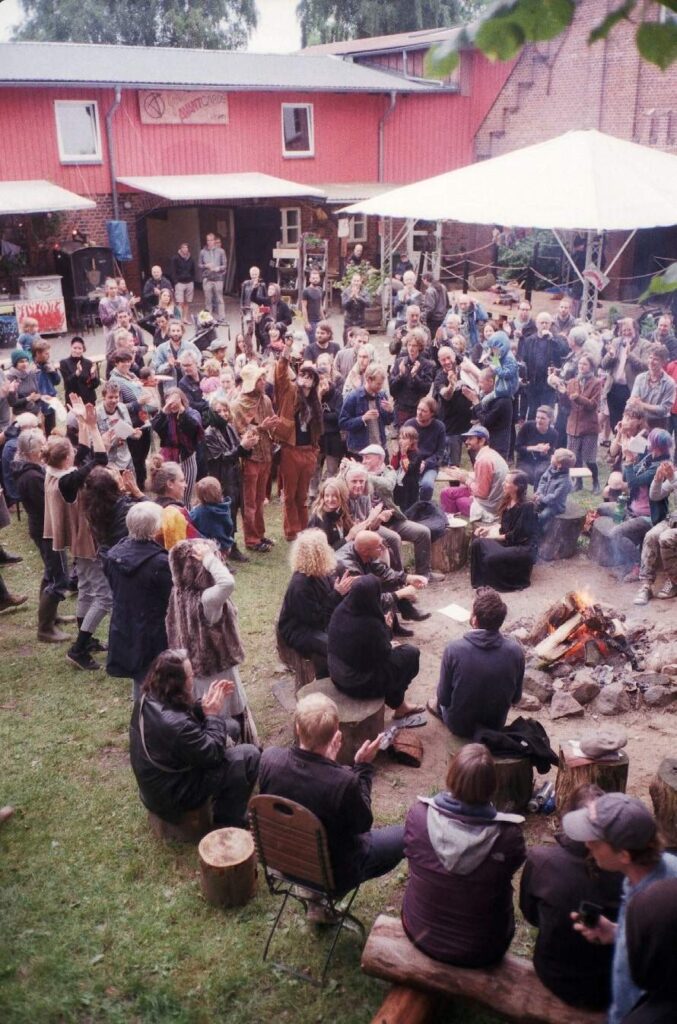
The festival has such a rich history, and yet, it almost feels as if it were a living organism constantly evolving. How do you, as organizers, maintain that spirit of constant reinvention while staying true to the festival’s roots?
Jean-Hervé: I had and still have the immense privilege of having Carina on my side, a partner/sponsor/“heart-of-the-house” since the very beginning of this adventure… plus Jeanne-Marie, our daughter, born in the Faust music, raised in the festival spirit. They ensured the continuity of the festival over decades and now secure the innovations to stay up-to-date with this fast-moving avant-garde genre.
Carina: If it wasn’t a living organism, it wouldn’t have survived. It’s the unexpected, the surprise elements that are fascinating.
Jeanne-Marie: It’s funny. We sometimes refer to it as a monster, but just this year I came up with a new metaphor – a creature living in the deep sea, which comes up from time to time to take a deep breath. So, it is organic, and it is more ruling us than we are controlling it. Is it constantly reinventing itself or something else? I doubt it. Is it staying true to its roots? Probably very much so. As it is tied to us as we are to it, it has to evolve as we, as humans, are evolving.
With its focus on unorthodox sound experiences, is there a danger of alienating traditional music listeners? Or do you see this as an opportunity to introduce them to new perspectives in sound and art?
Jean-Hervé: We are lucky to have an open-minded audience ready to listen to whatever reaches their eardrums. We have also welcomed traditional music listeners, and they were apparently positively surprised by what they heard… or they were polite. “You cannot please all of the people all of the time” (Abe Lincoln).
Carina: Yes, quite a few people will feel alienated. But for them, there are plenty of opportunities to listen to traditional, mainstream music. However, we see the festival as an offer to everybody to expand their range. The policy of free entry for locals is one step in the direction of reaching out. Obviously, free entry for all might attract more people who are not familiar with our approach to music and art… but we just cannot afford it if we want to be fair to artists and the crew.
You mentioned in 2019 that the era of the Avantgarde Festival was over, only to bring it back in 2025. What was the catalyst for the return, and how did the break influence your vision for the future of the festival?
Jean-Hervé: This festival is a monster who sleeps deep but sporadically wakes up and devours us… there is no way to escape it. We always swear: “This is the final one! No more!!” But then artists call us, friends call us, and ask: “When? Cuando? Wann?” … and the monster awakes.
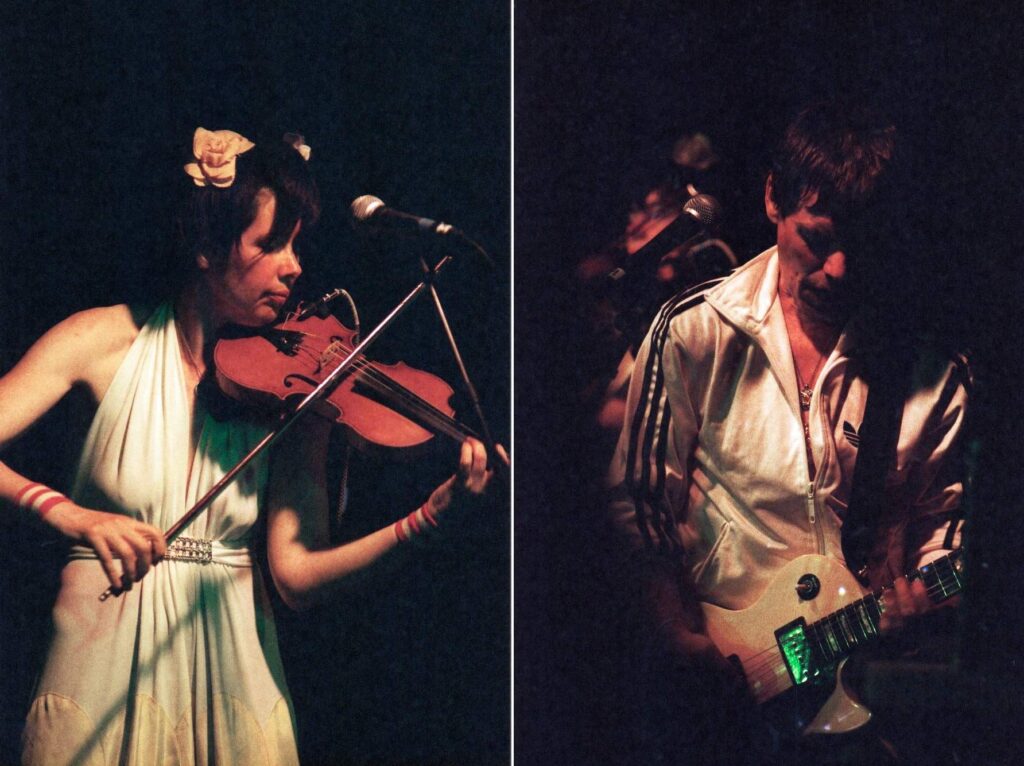
The catalyst was a planned workshop/installation/performance of Pawel Romanczuk’s works in 2024… It became the centerpiece of a rather spontaneous Midsummer Special Festival… and so the story goes…
Jeanne-Marie: Actually, I was pretty sure that 2019 was the end of the festival. We reached the ultimate high peak. It was anarchistic, open, free, and special. I was scared that we could not host such a beautiful experience again, and I didn’t want to do any less than that! And then comes life. Tragic losses, a pandemic, the unstoppable rise of far-right fascism… I worked in other places, I learned a lot, and so I knew coming back now that maybe we couldn’t have the same idealistic event again (risking being disillusioned), but that I could make it happen again! We can create a safe space and a place to meet. We can try to reach out to people and help them see and experience more. We need to! I truly believe that we need to continue, even though I feel so pathetic saying, “Hey, sorry, mistake: we actually are not done yet.” … We are not! As long as we possibly can, we will try to continue, and that is a promise: never again announce the end. I guess one day the creature from the deep sea will just not rise again, who knows when and why…
Klemen Breznikar
Avantgarde Festival Website / Facebook / YouTube

